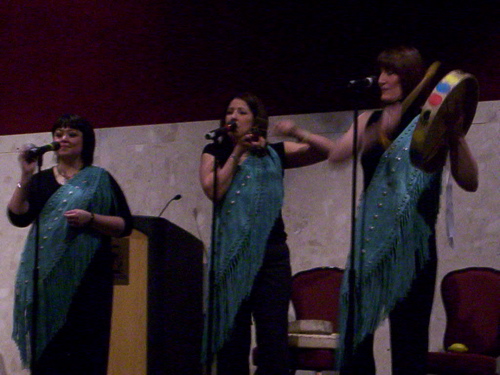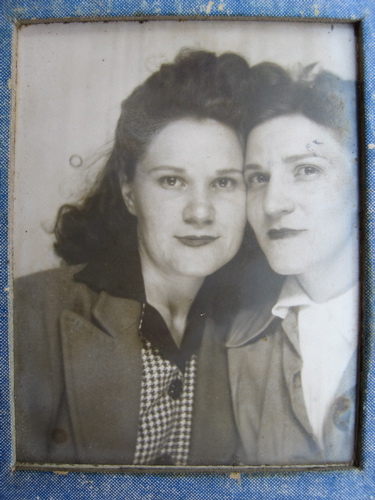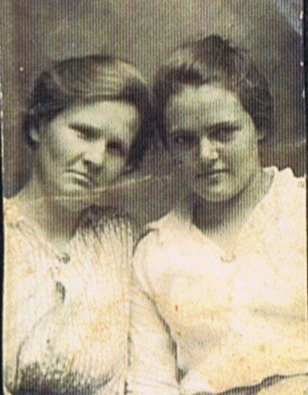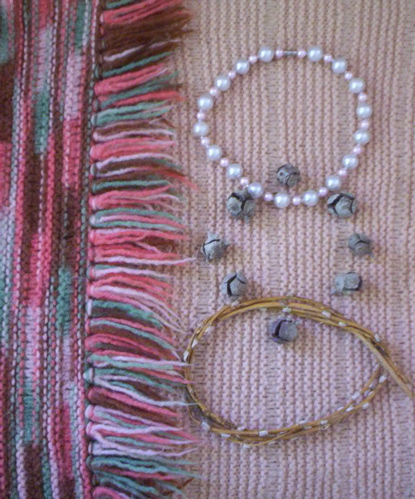 I knew which topic to debut on “Breaking the Silence” after attending the Wordcraft Circle conference Returning the Gift (RtG) 2008. My clarity follows five years of grappling what being mixed race means in a light-skinned body raised in a White world. In this piece, I am “outing” the shame I have heaped upon myself for identifying as Cherokee.
I knew which topic to debut on “Breaking the Silence” after attending the Wordcraft Circle conference Returning the Gift (RtG) 2008. My clarity follows five years of grappling what being mixed race means in a light-skinned body raised in a White world. In this piece, I am “outing” the shame I have heaped upon myself for identifying as Cherokee.
I have been told that “identity recovery” is the most appropriate phrase to call this process in order to avoid “identity fraud.” Yet the phrase “identity recovery” has paralyzed my tongue when I imagine or try speaking among native people, like at the native writers conference RtG. The phrase was handed to me some time ago while I was still in academe, a place where I learned ten years and taught five years, and from which I fled in 2005 for my health and sanity. And while many people from RtG work in academe, the reason for the gathering is far from academic.
I don’t know my Cherokee family name, so some may say, “How dare you!” when I identify as Cherokee. I have been told that I need this name for introduction to the Cherokee community. So if I don’t have the family name, what is the basis of my claim? Being called “Navajo” in high school? Being called “Indian princess” by an ex? No.
 My father’s mother told me about our Cherokee ancestry well before she passed in 1998. Born Neoma Otha Malone in 1926, Athens, Tennessee, of McMinn County, which is two counties north of the Georgia state line. Her birthplace, and those of her mother and father’s peoples, is on the homeland of the Cherokee.
My father’s mother told me about our Cherokee ancestry well before she passed in 1998. Born Neoma Otha Malone in 1926, Athens, Tennessee, of McMinn County, which is two counties north of the Georgia state line. Her birthplace, and those of her mother and father’s peoples, is on the homeland of the Cherokee.
I sought out my grandmother’s surviving siblings, her eldest sister Mary and youngest sister Rexine, who both met me as a child in the 1970s. In 2004, I first wrote them while studying in Belgium. In 2007, I traveled to their homes in the Pacific Northwest, where their father Joseph moved the family in 1938. My three visits during the year confirmed my grandmother’s words but without a Cherokee family name.
The shame has stemmed from my response to responses of others who flew red flags as I began to write about this process of identity recovery. When my words spilled onto academic pages as a doctorate student, I was cautioned and chided. I was made to understand that in academe my claims without documentation and relationship to the Cherokee community were, at the least, unacceptable and untenable and, at the worst, arrogant and outlandish.
Additionally, I came to understand that my claims held the potential to impact individuals with whom I worked and institutions in which I worked. I came to believe that I held no basis to speak, which primarily for me meant writing, about this “identity recovery.” No one advised me never to speak or write about identity recovery, but I understood that doing so would jeopardize others and myself in the academic world. Yet how was I to recover anything in silence?
And why the shame? There is no personal fault here for the loss of the family name. There is no personal fault for my being drawn to people, places, and practices that affirm the Cherokee ancestry confirmed by my grandmother and great aunts.
What there is responsibility: what I do with this persistent drive to know who I am. There is my response to the skeptical “Why?” about my bothering with identity recovery. Because it is a bother to me, to those who raised me, befriend me, and have taught me; to those who guide, reject, or ignore those of us stumbling with shame in this process.
As a noun, “bother” is defined as “trouble or effort to do something” and “somebody or something that causes annoyance, for example, by making noise.” As a verb, “bother” means “to make somebody feel worried, anxious, or upset”; “to annoy or disturb somebody, for example, by interrupting or making unwelcome advances”; and “to make somebody feel physical discomfort or pain.”
 For some, I lack a tangible reason to bother. Yet I continue my genealogical research, because I believe my elders and I want to give my nieces and nephews our family name. And my quest continues outside of books, with gifts of knowledge and nature from strangers and loved ones.
For some, I lack a tangible reason to bother. Yet I continue my genealogical research, because I believe my elders and I want to give my nieces and nephews our family name. And my quest continues outside of books, with gifts of knowledge and nature from strangers and loved ones.
I must speak, write, and publish about embracing Cherokee descendancy from this body, mind, and spirit from this time and place. It is not a solitary embrace: I connect with individuals identifying as people of color, Cherokee, and White. And I am not proselytizing individualism, but I am an individual finding her path in a world of red flags, White ways, and full circles.
While I would like one day to present myself to the Cherokee community, there are multiple circles of this community drawn in conflict, and my status may “fall beyond” even these conflicted circles. From what I have learned so far, which is a beginning in a lifelong process, debates abound (as is the case for many tribes) among Cherokees about Cherokee-ness. Citizenship, geography, and constitutional make-up are just a few of these divisive sites. (Here are several articles for consideration: The Cherokee Nation’s contradictory stance, When does ethnic fraud matter?, Red Stick lit crit.)
 What I am done with, though, is bowing to this self-imposed shame about identifying as Cherokee, and the 2008 RtG conference was my turning point. I agonized during its open-mic event about which poems to share and how to introduce myself. After reading with a burning face and buzzing ears, I sat down and seriously thought about not attending the last day, the skeptical “Why?” crushing my soul.
What I am done with, though, is bowing to this self-imposed shame about identifying as Cherokee, and the 2008 RtG conference was my turning point. I agonized during its open-mic event about which poems to share and how to introduce myself. After reading with a burning face and buzzing ears, I sat down and seriously thought about not attending the last day, the skeptical “Why?” crushing my soul.
The next morning I wore gifts from loved ones: handmade jewelry from a friend, and a shawl knit by my maternal grandmother. I hesitantly packed dried willow and juniper berries with seeds for unknown recipients. And that day at the conference I felt at home as each of my gifts found homes.
*********************************************************************
Breaking the Silence is a series of essays by Melissa Dey Hasbrook. The series’ concept is explained here: What Do You Think?.
Post updated: 26 January 2009.
Photo 1 Credit: Asani by Melissa Dey Hasbrook.
Photo 2: Neoma Otha Malone to left, paternal grandmother of Melissa Dey Hasbrook.
Photo 3: Martha Emmaline Walsh to left, mother of Neoma Otha Malone.
Photo 4 Credit: Melissa Dey Hasbrook.

Cherokee by Melissa Dey Hasbrook is licensed under a Creative Commons Attribution-Noncommercial-No Derivative Works 3.0 United States License.


Pingback: The Silence of Violence - Bts 1.6 - Dey of the Phoenix